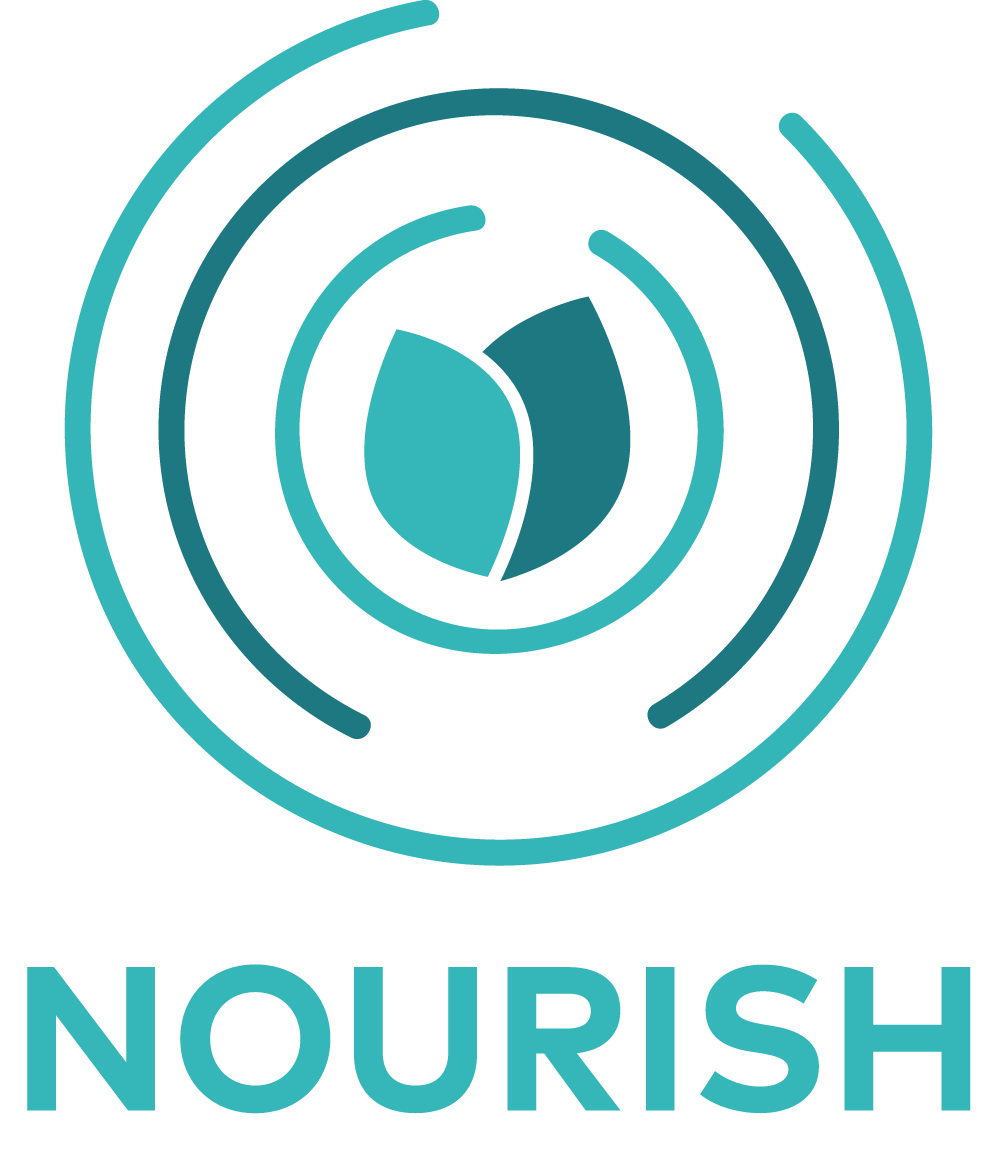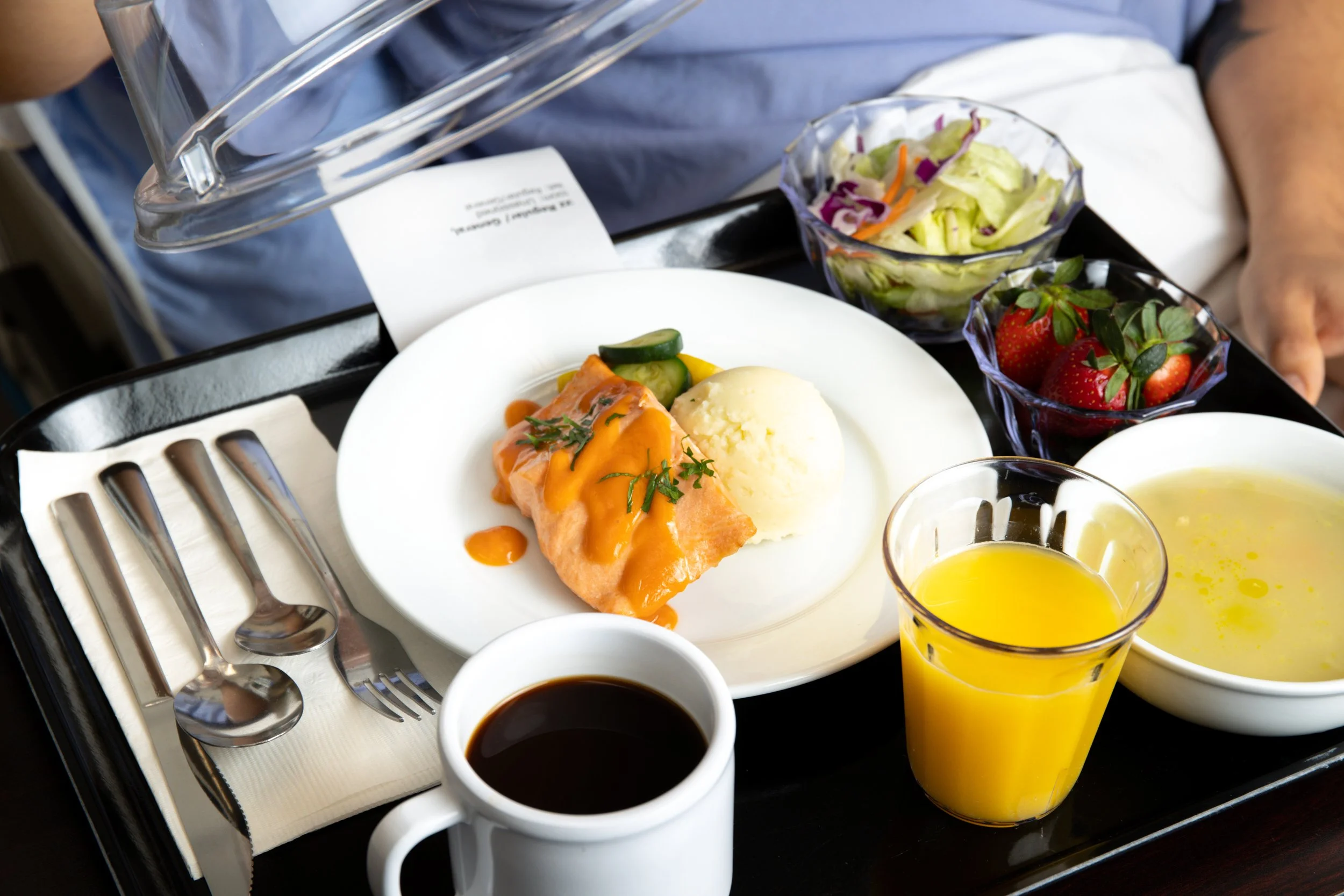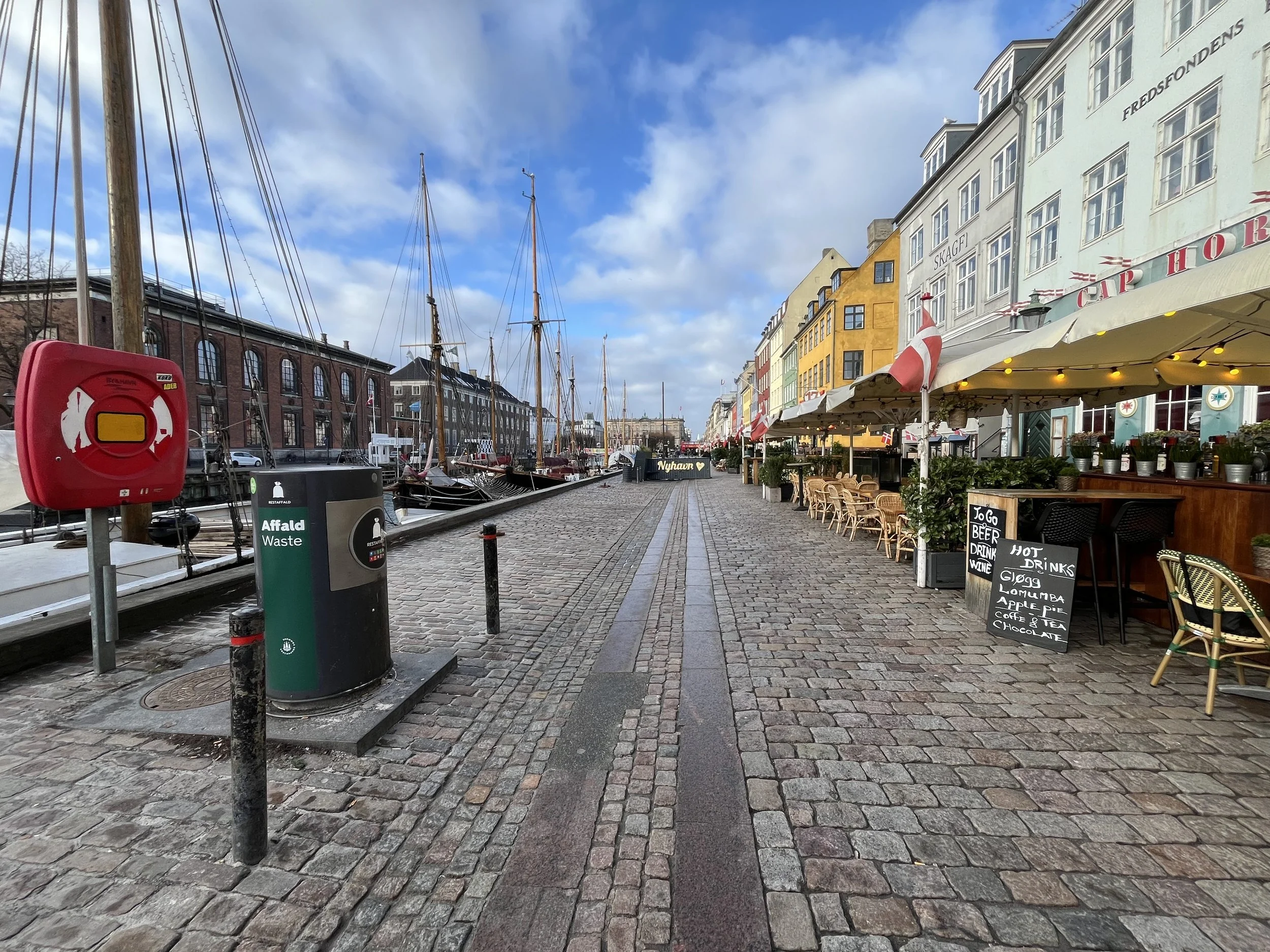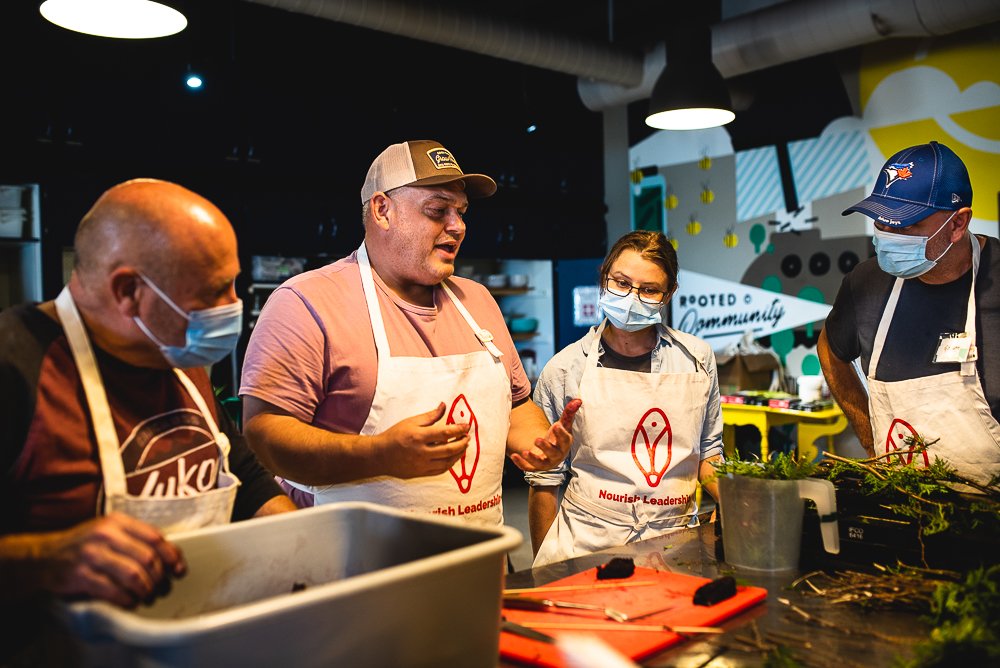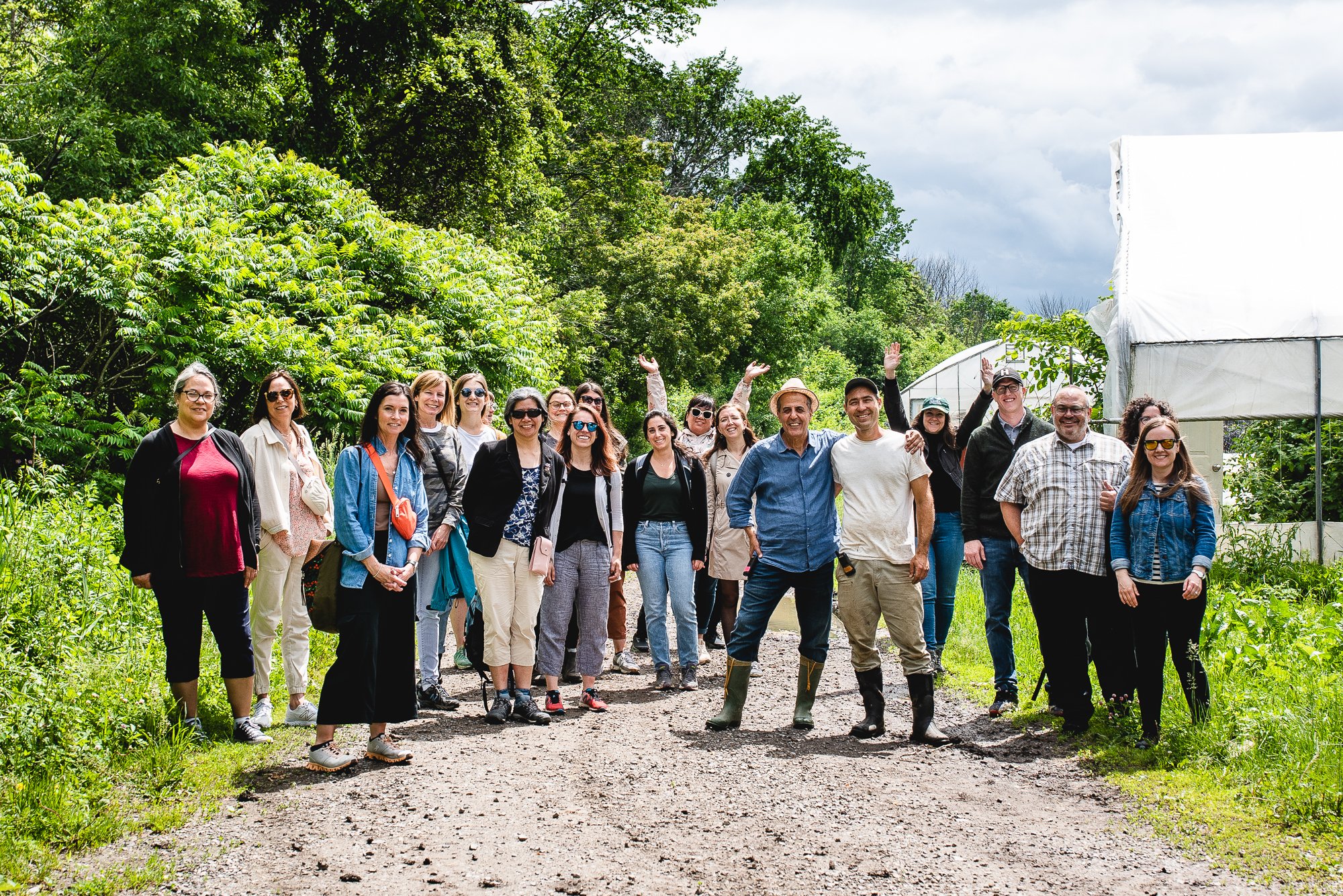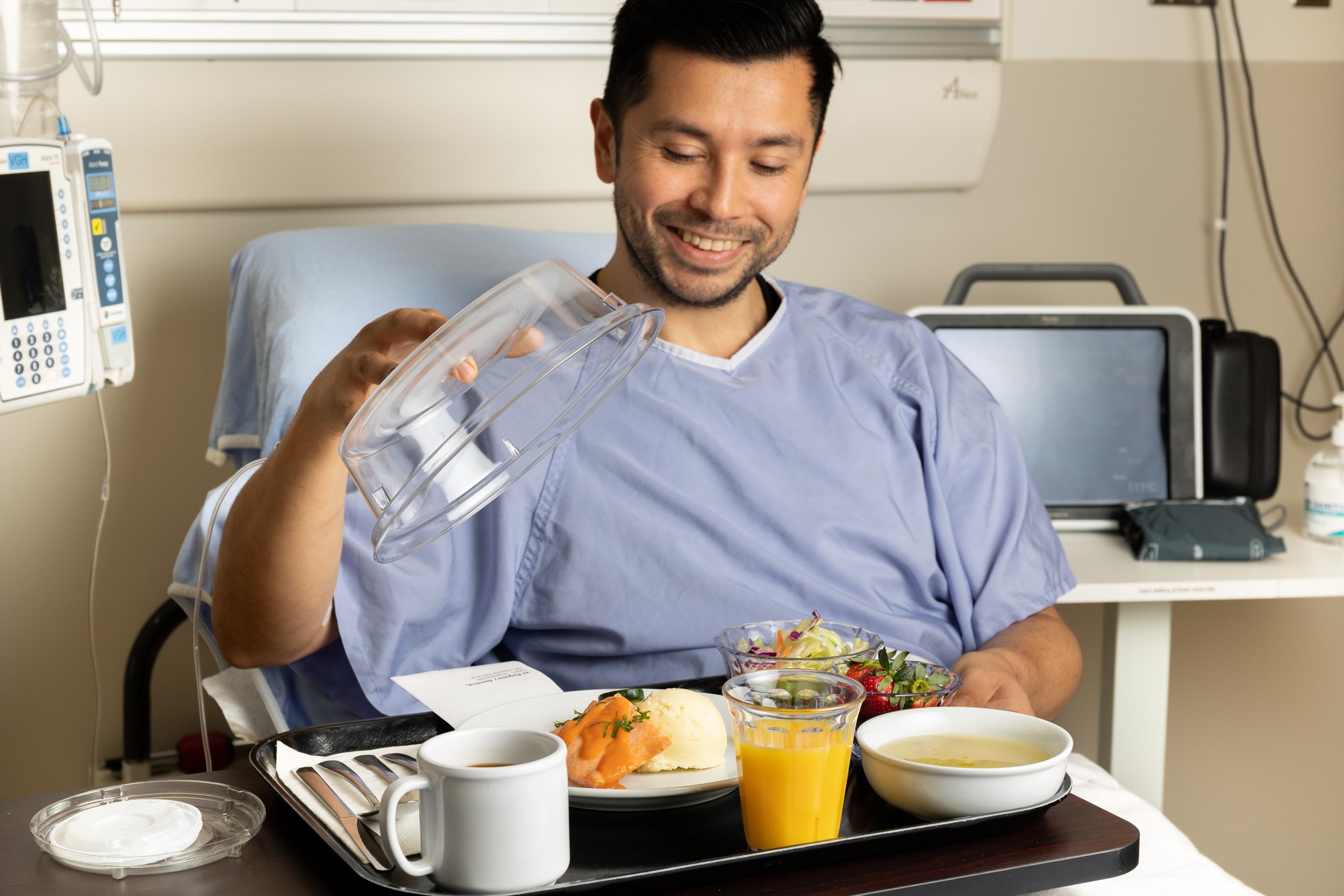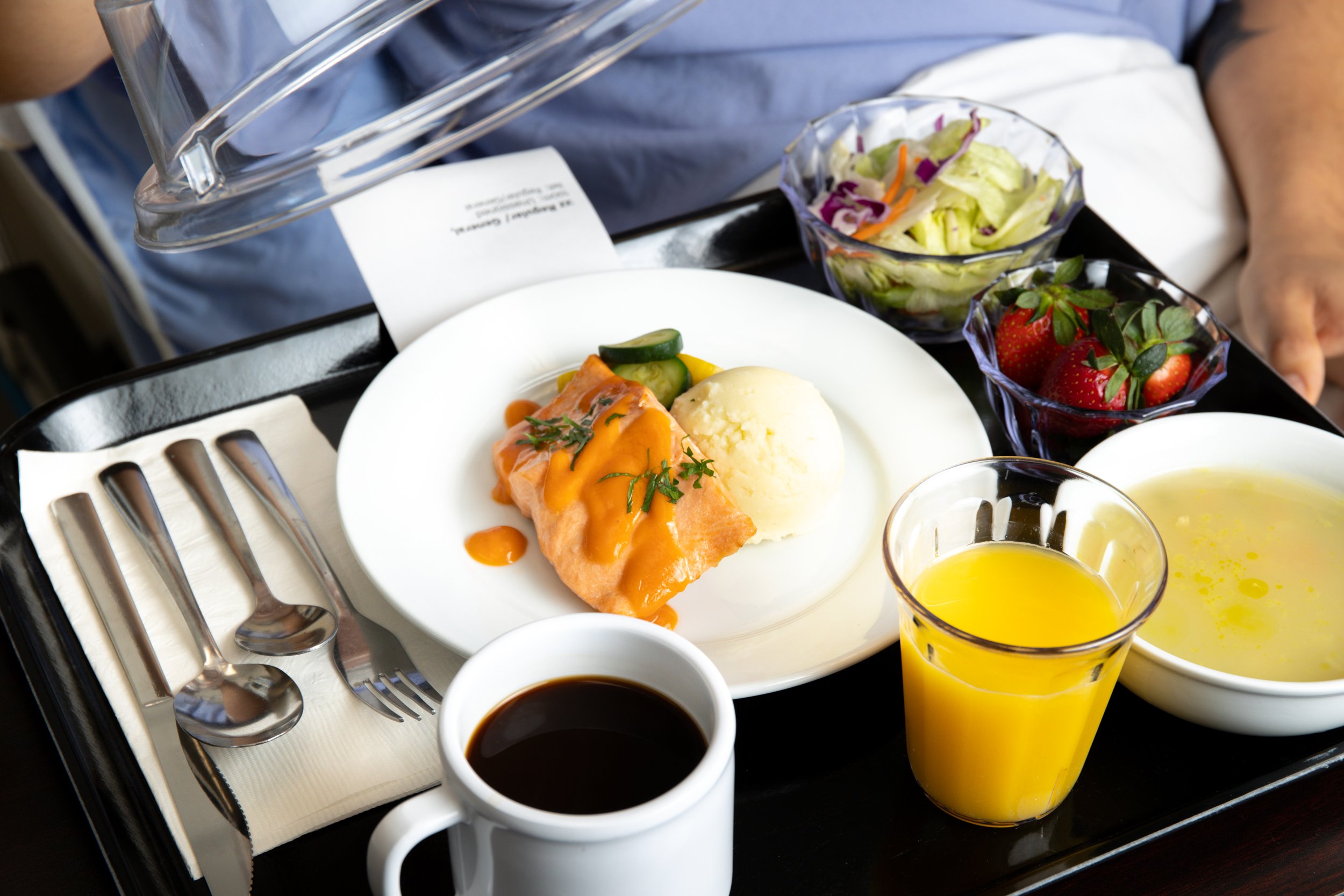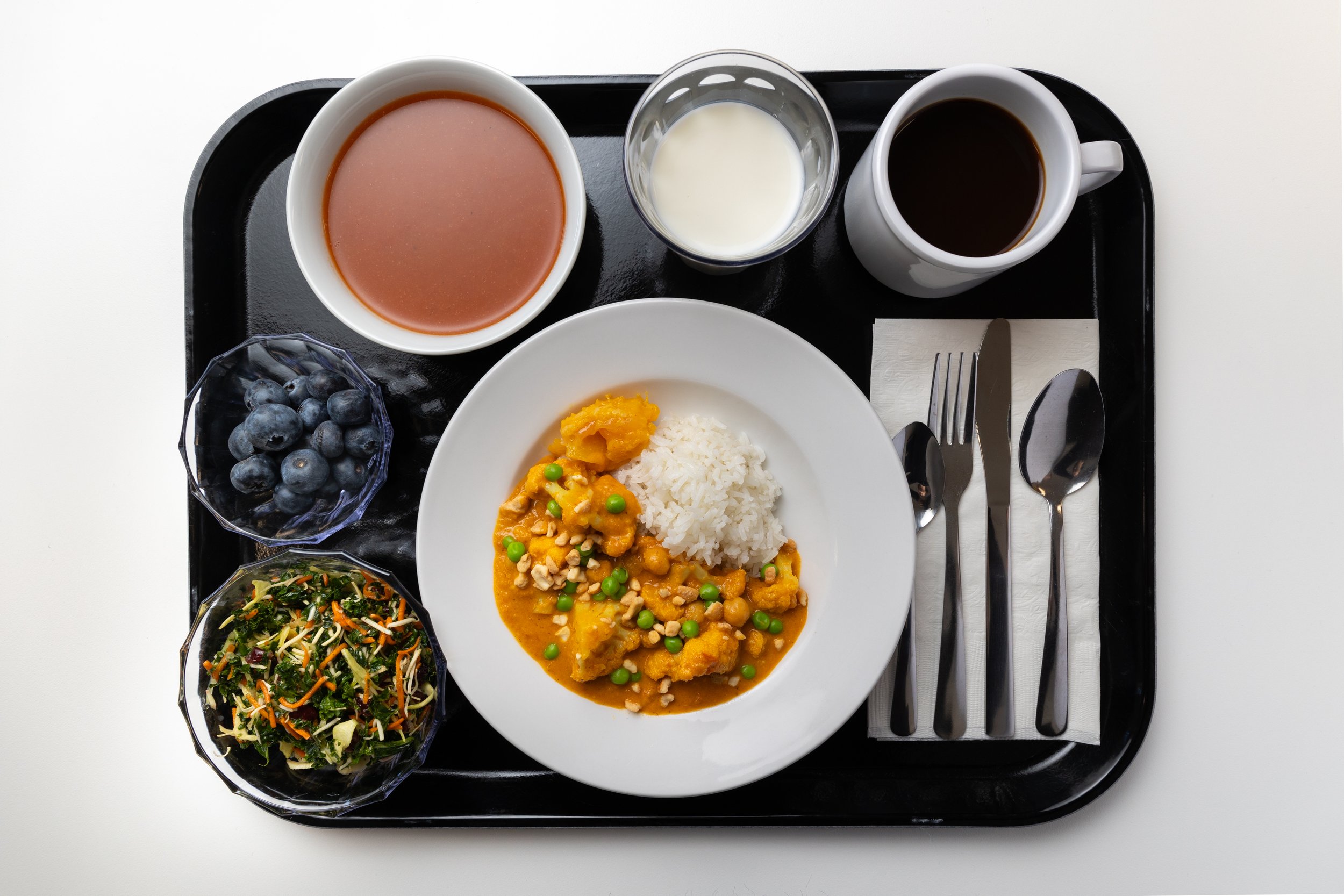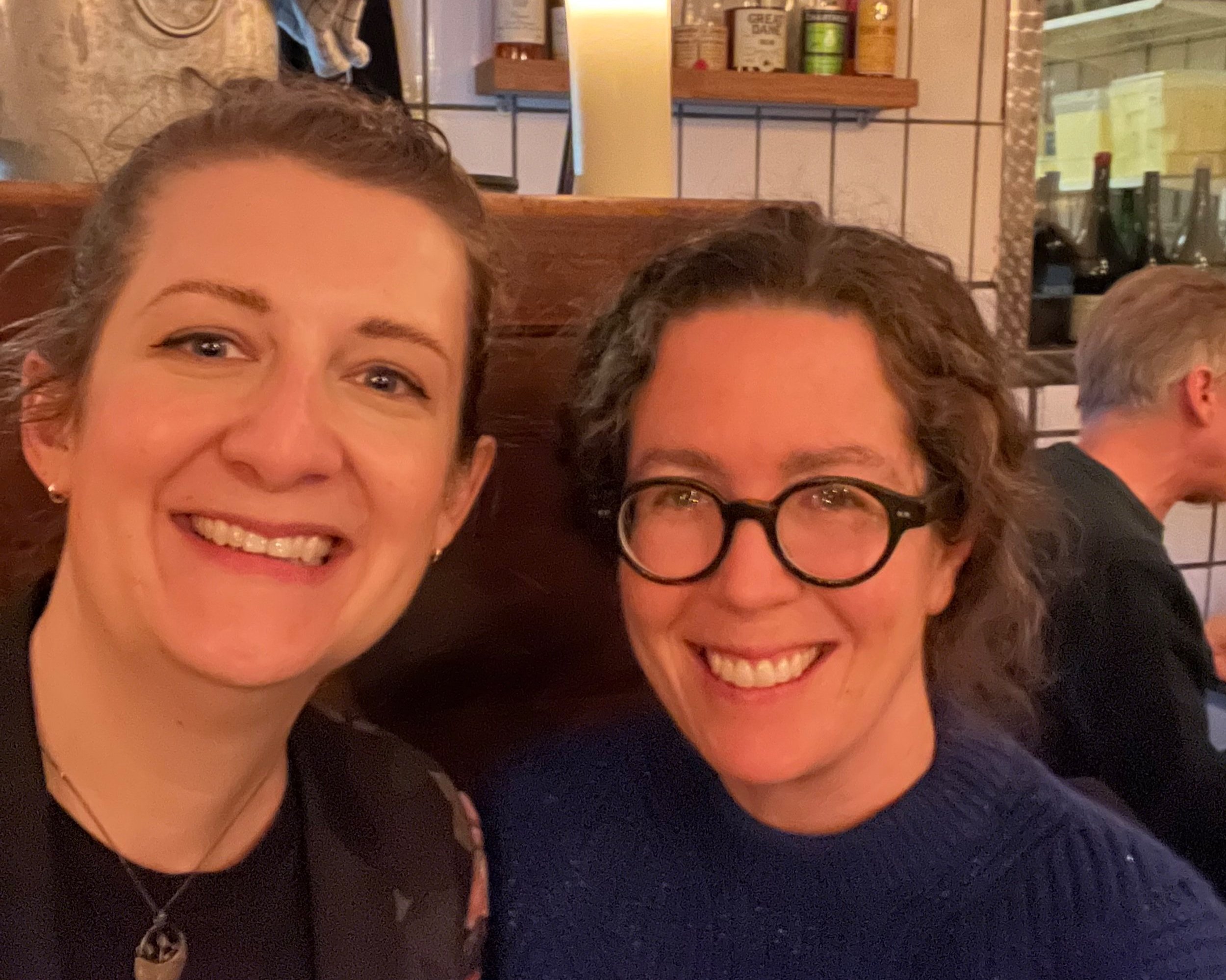Nourish’s Anchor Cohort program is grounded in the critical role of collaboration in driving systemic change in health care. Below we tell the story of the transformative journey of Vancouver General Hospital’s development of the hospital-wide Planetary Health Menus project, a first in Canada.
At Nourish, we work with incredible innovators who drive positive change through their vision, initiative, and action. Nourish catalyzes the shift towards better food in health care by fostering collaboration and shared learning among innovators.
This work takes time because of the scope and scale of the change contemplated. But, when change is finally realized, it can feel like magic.
We felt the magic earlier this spring when Vancouver Coastal Health (VCH) launched its Planetary Health Menus pilot at the Vancouver General Hospital, the largest in B.C. The project was initiated by visionary champions who were supported by partners including Nourish through their participation in our second Cohort. Over two years in the Cohort, the VCH team bridged departmental silos, built support across the organization, and has now scaled their work from a prototype to a national success story.
The Critical Role of Relationships in Systems Change Work
Relationships are the seeds from which change flourishes. This is one of the core tenets of Nourish’s Cohorts. For the past seven years, Nourish has been bringing together health care leaders to leverage their key roles within their organizations and communities to accelerate progress toward health for people and the planet. Our three cohorts to date have engaged over 30 health care organizations from coast to coast to coast, and one of the results from these longitudinal partnerships we are seeing today is the achievements of the VCH team. From the seeds nurtured by the cohort has come a watershed moment to elevate the national conversation around the pivotal role of plant-forward menus in health care climate action.
Nourish’s Role: Bridging Silos to Cultivate Interdisciplinary Collaboration
The VCH Planetary Health Menus Pilot was spearheaded by an interdisciplinary group of motivated changemakers who believe food is a lever for taking bold and ambitious climate action. The vision was brought to fruition by a cross-department partnership led by Dr. Annie LaLande, PhD Candidate and Surgical Resident at Vancouver General Hospital, and Tiffany Chiang, Director of Food Service Transformation and Strategic Projects at VCH. Together, they would bring the expertise of food service staff clinicians, dieticians, and planetary health experts with the work of Chef Ned Bell, a renowned sustainable food system expert.
In 2021, the team joined the second Nourish Anchor Cohort after it had completed its initial testing of planetary menus on a surgical ward. The Cohort program provided a collaborative space for the team to surface challenges, access resources, seek advice, and harness the benefits of collaborative learning within a community of cohort peers and alumni about what they could achieve together. It was within this nurturing ecosystem that the potential of food as a lever for change flourished.
“We’ve long used the phrase ‘food is medicine’ and we’re finding that this is true not only for patients but for our planet as well. Providing tasty, nutritious meals, which is critical to recovery from illness and injury, also presents a significant opportunity to decrease our environmental footprint by focusing on lower-impact ingredients.”
The VCH team built a truly cross-departmental team, building interest, participation, and commitment from the disciplines and departments required to realize their vision. With the right people on board, they learned they could go further faster, momentum grew, and the idea expanded from piloting on a ward to becoming a hospital-wide project.
Nourish’s Food for Health Levers provides a framework on how food in health care can advance climate action, reduce health inequities, and promote community well-being and patient healing. In 2023, the VCH team in the Anchor Cohort conducted a successful six-month pilot to test and introduce flavourful and comforting meals for patients, made with fresh and nutritious ingredients to aid healing and recovery. The result demonstrated that hospital food can and should be delicious, nutritious, and an incredible opportunity to take climate action three times a day.
Together the VCH team dared to challenge the status quo, envisioning a future where hospital meals weren’t just sustenance, but a necessary ingredient in supporting planetary health. The Vancouver General Hospital pilot represents the first successful Canadian hospital-wide pilot of a plant-rich menu. Elaine Eppler, a VCH dietitian, described the pilot project as the most exciting endeavor in her 36-year career.
What’s Next: Sustaining Momentum and Scaling Impact
An in-depth analysis is underway to quantify the greenhouse gas emissions reductions during the project and to identify the menu changes with the greatest impact. Early predictions expect emissions to reduce by 15-20%. Patient satisfaction metrics are expected to soar, drastically reducing food waste and the associated costs. Beyond the project, the ripple effect is already expanding to reach other hospitals within the health authority and Nourish aims to build momentum with other hospitals making net zero commitments.
Canadian Hospitals are Invited to Join the Movement for Planetary Health
Nourish invites Canadian health care organizations to seize the opportunity to leverage the power of food and join a growing global movement. For example, New York Public Hospitals, shifts to plant-based meals have already reduced emissions by 36% and Denmark’s action plan to transition to plant-based food offers grants and incentives to shift menus and develop value chains. There is a growing urgency for policy shifts to support this work, and hospitals are uniquely positioned to take a leadership role. Join a growing number of health care organizations committed to climate action through the Coolfood Pledge.
Nourish change in health care.
Watch Nourish ambassador, Chef Ned Bell’s CTV interview on the project here.
Photo Credit: VCH
